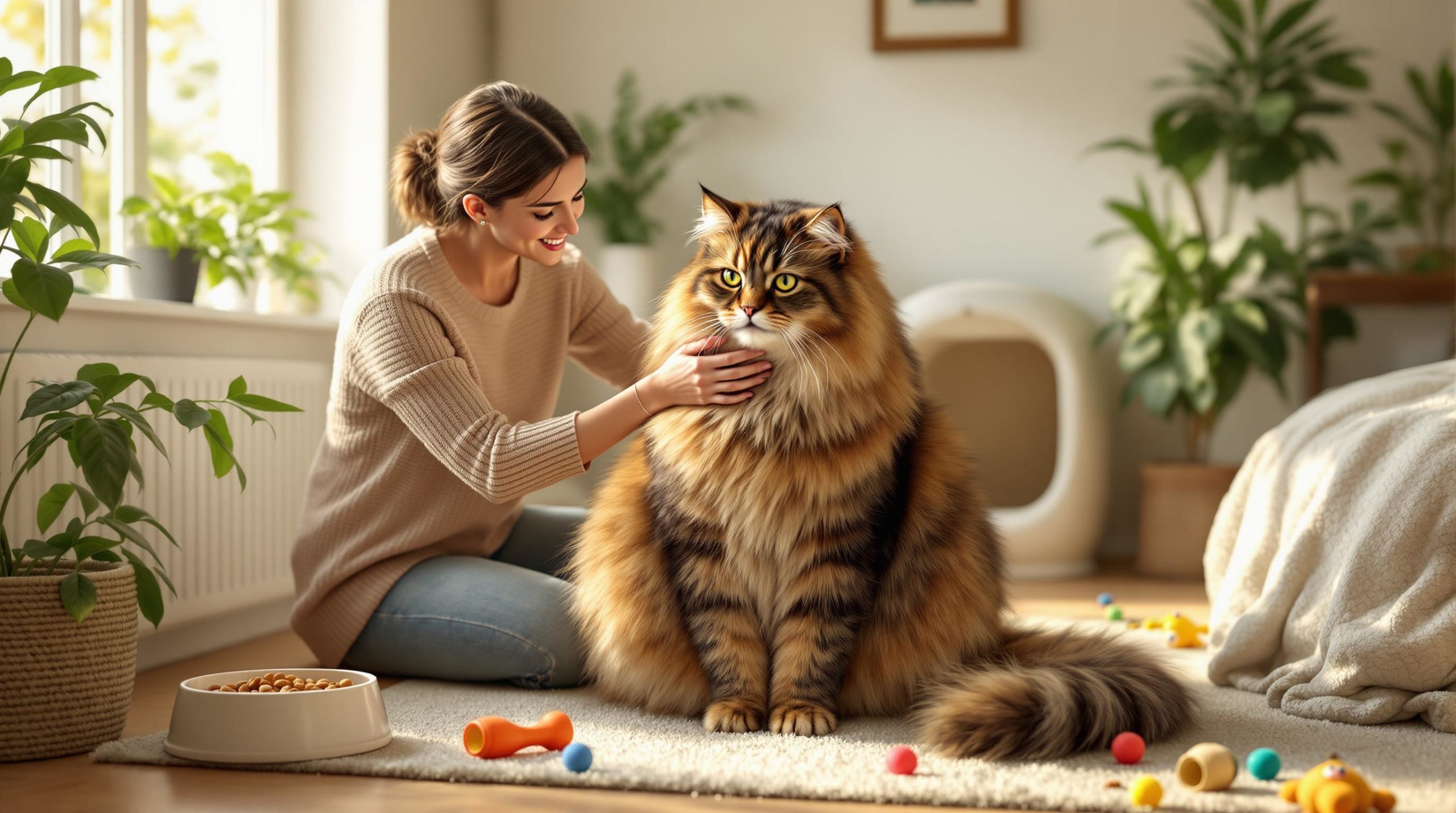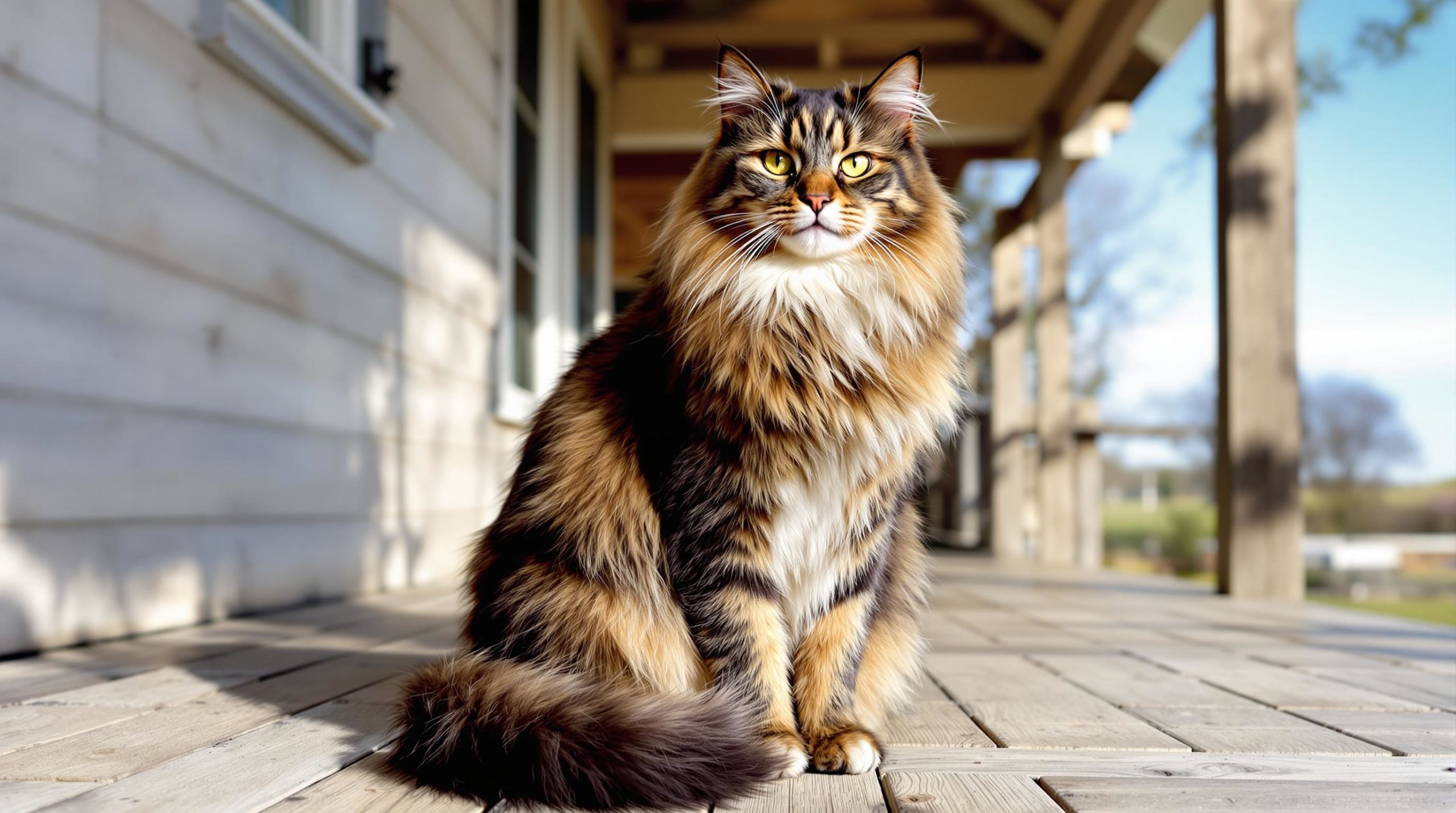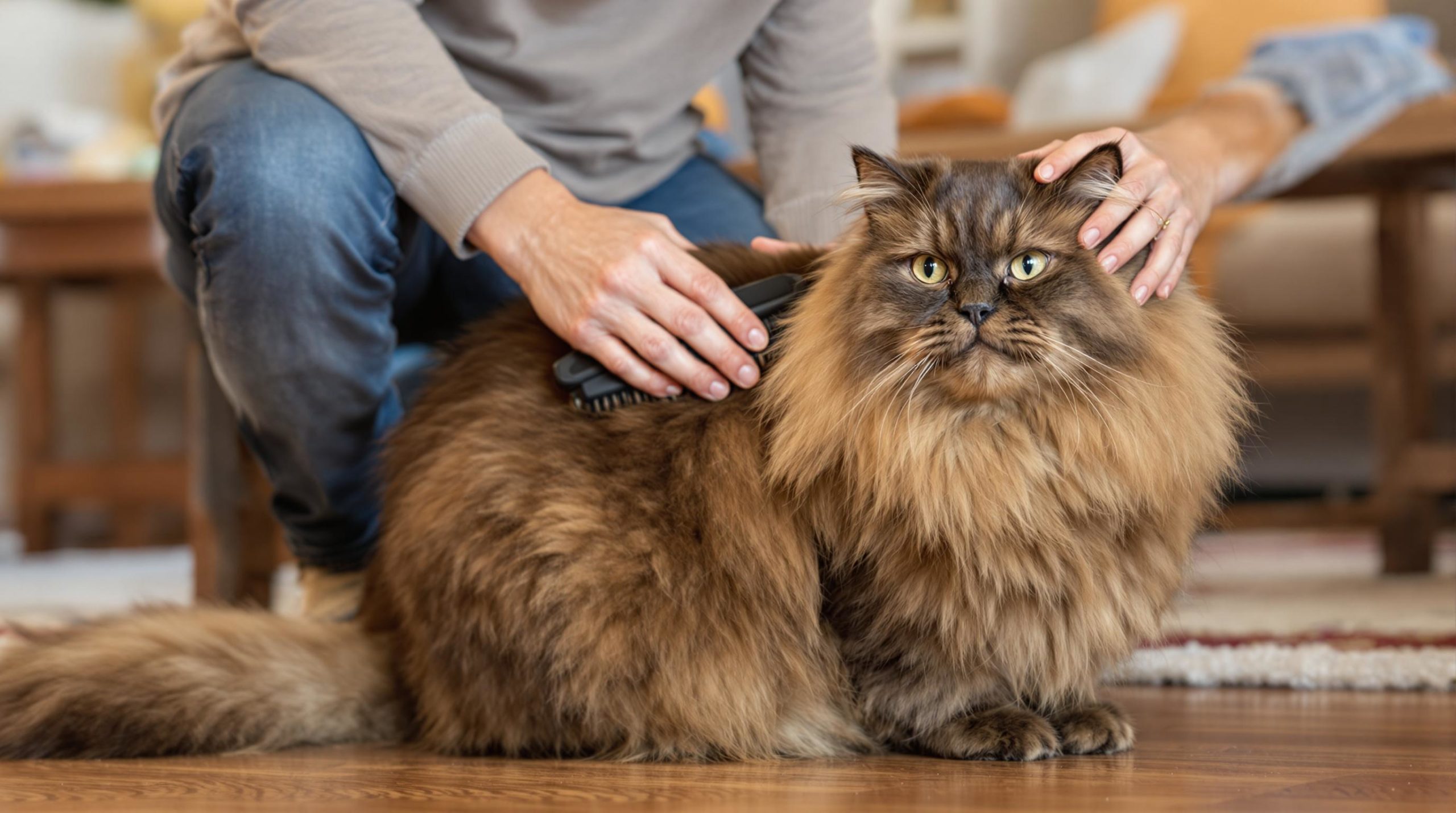Tips for nurturing your Maine Coon to reach its full size potential

Ever wondered how to help your Maine Coon live up to its reputation as one of the largest domestic cat breeds? These gentle giants aren’t just big by accident; their impressive size results from a blend of genetics, nutrition, care, and patience. Understanding what fuels their growth and how to support it can unlock your cat’s full majestic potential. From choosing the right diet to fostering an engaging environment, here’s a deep dive into expertly nurturing these lovable felines into their grandest form.
Understanding Maine Coon Growth Patterns: Unlocking the Giant Within
Maine Coons stand apart from many other cat breeds due to their extended growth period. While most domestic cats reach their full size by 1 to 2 years, Maine Coons continue to develop well into their fourth or even fifth year. Their growth unfolds in distinct phases, each requiring special attention.
The Slow and Steady Growth Curve
Unlike smaller breeds that hit full size quickly, Maine Coons mature slowly. This gradual pace is essential to build the robust bone and muscle structure that defines their magnificent stature. Kittens often double or triple their birth weight in the first six months, yet length and bone growth continue steadily afterward.
During the first year, the focus is on steady, balanced weight gain to avoid stressing growing joints. Between ages one and three, length increment slows, shifting towards muscular development and strengthening bone density. Mature adults, typically from ages four to five, complete their growth by filling out to their fullest size and muscle tone.
Typical Size Ranges by Gender
Understanding size expectations helps owners track if their cat is developing properly. According to TICA.org, males generally weigh between 18 to 22 pounds, while females range from 12 to 15 pounds. Males often sport broader shoulders and taller, longer limbs, whereas females maintain a robust but more streamlined build.
| Sex | Ideal Weight | Characteristics |
|---|---|---|
| Male | 18–22 lbs | Tall, long-bodied, strong bones, broad shoulders |
| Female | 12–15 lbs | Smaller frame but muscular and robust |
- Growth phases stretch over 3-5 years
- Watch for gradual weight gain without sudden spikes
- Monitor length first year, muscle bulk in following years
Tracking growth with this timeline in mind prevents rushing the process or overfeeding, which can lead to health problems.

Feeding Right: Nutrition’s Role in Maximizing Your Maine Coon’s Size
The adage “you are what you eat” holds especially true for Maine Coons. Fueling their advanced growth demands a premium diet tailored to large, muscular cats that develop slowly.
Key Nutritional Components for Optimal Maine Coon Growth
Maine Coons require high protein levels to sustain muscle synthesis and support tissue repair during their long growth period. Equally important are healthy fats and moderate calcium-phosphorus ratios to strengthen bones without triggering issues like hip dysplasia.
| Nutrient | Ideal Range (Kittens) | Ideal Range (Adults) | Importance |
|---|---|---|---|
| Protein | 40-50% | 35-45% | Builds muscle and supports growth |
| Fat | 18-25% | 15-20% | Energy for development and brain health |
| Carbohydrates | <10% preferred | <15% preferred | Limit to avoid fat gain over muscle growth |
| Calcium:Phosphorus | 1.2:1 to 1.4:1 | 1.1:1 to 1.3:1 | Supports bone strength and joint health |
| Taurine | 0.10-0.25% | 0.10-0.25% | Essential for heart and eye health |
| Omega-3 (DHA/EPA) | 0.02-0.05% | 0.01-0.03% | Supports joints, brain, and fur quality |
Choosing the Right Brand and Formula
Not all cat foods are created equal. For the best growth outcomes, identify products with these qualities:
- Named animal protein as the first ingredient (e.g., chicken, turkey, or salmon)
- Formulas geared toward large breed kittens or active adults
- Added joint-support nutrients such as glucosamine and chondroitin
- Minimal fillers like corn, wheat, or soy that contribute little nutritional value
- High moisture content, particularly from wet foods, to aid hydration and kidney health
Top-quality brands like Royal Canin, Hill’s Science Diet, Purina Pro Plan, Blue Buffalo, and Wellness Natural Pet Food offer specially formulated diets suitable for Maine Coons. Additionally, products from Natural Balance, Merrick Pet Care, Orijen, Acana, and Victor Pet Food have carefully curated ingredient profiles tailored to large and slow-growing breeds.
Combining dry kibble and wet food can balance dental health and hydration. For instance, feeding two sachets of wet food weekly helps avoid tooth decay while providing a protein-rich, moisture-laden meal.
- Avoid generic store brands with vague or “meat by-product” ingredients
- Steer clear of “all life stages” formulas which may not meet specific nutrient needs
- Opt for life stage-appropriate food: kitten formula up to 1.5 years, then adult or large breed formula
Exercise and Environment: Building Strength and Coordination Naturally
Physical activity isn’t just about burning calories—it’s also critical for your Maine Coon’s muscular and skeletal development. These agile giants are natural climbers and hunters, and replicating these activities in your home can boost their growth and wellbeing.
Designing an Enriching Play Environment
- Incorporate sturdy cat trees with multiple horizontal platforms to allow full limb extension
- Use interactive toys like feather wands or remote-controlled mice to encourage chasing and pouncing
- Provide daily play sessions lasting 15-20 minutes to enhance muscle tone and prevent obesity
- Consider installing a secure outdoor “catio” for safe exploration, strengthening coordination and natural instincts
These activities replicate hunting challenges found in the wild, sharpening physical fitness and mental acuity, critical for overall growth. Read more about Maine Coons’ hunting instincts and how to channel them constructively.
Preventing Growth Issues Through Exercise
Exercising too little can lead to sedentary troubles like joint stiffness and excess fat—both detrimental to healthy growth. Conversely, too much vigorous exercise at too young an age risks injuries. Balance is key, starting with gentle play and gradually increasing intensity over months.
| Exercise Type | Recommended Age | Benefits |
|---|---|---|
| Floor play with toys | All ages | Builds muscle and encourages healthy energy release |
| Climbing on cat trees | From 6 months | Develops limb strength and coordination |
| Interactive chase games | Up to 3 years | Enhances stamina and muscle tone |
| Outdoor exploration in secure catio | After vaccination and vet clearance | Stimulates mental wellbeing and physical health |
Health Monitoring and Grooming: Foundations for Long-Term Growth
To nurture your Maine Coon safely, regular vet visits and proper grooming are critical components that indirectly contribute to robust growth and wellbeing.
Veterinary Check-Ups for Large Cat Breeds
Routine vet assessments help identify early signs of breed-specific conditions like hip dysplasia or hypertrophic cardiomyopathy. These conditions can stunt development or cause pain that discourages activity.
- Annual physical examinations including joint evaluations for swelling or lameness
- Heart screenings such as echocardiograms to detect cardiomyopathy
- Bloodwork to monitor organ function and hormone balance
- Introducing joint-support supplements as recommended by your vet
Early detection and intervention can preserve mobility and comfort, allowing your cat to continue growing and staying active.
The Importance of Grooming for Comfort and Movement
Maine Coons sport thick, long fur that requires regular grooming. Healthy skin and coat reduce irritation and discomfort, enabling your cat to stay active and explore without hindrance.
- Brush fur 2-3 times weekly to prevent matting and skin infections
- Regular handling also familiarizes your cat with vet visits and grooming routines
- Maintain ear and dental hygiene as part of overall care
Well-groomed cats show more confidence and a willingness to engage in physical activity, further supporting size growth.

Avoiding Common Pitfalls: Managing Weight and Stress for Maximal Growth
Even the best intentions can go awry without a watchful eye on weight control and a calm environment conducive to well-being. Overfeeding and stress stunt growth more often than one might expect.
Why Calorie Control Matters
Maine Coons are slow growers but voracious eaters with a penchant for food. Free-feeding leads to obesity rather than muscle mass. Measured, portion-controlled meals support healthy development.
- Check the rib cage regularly; it should be palpable without a thick fat layer
- Observe their waist from above and side-on for a gentle hourglass shape
- Avoid “round” or “soft” body shapes typical of overweight cats
- Feed multiple small meals rather than free access to food
- Consult care tips for handling overweight Maine Coons if weight becomes an issue
Stress Reduction: A Hidden Growth Accelerator
A calm, nurturing home environment fosters steady growth and confidence. Maine Coon kittens, in particular, thrive in low-stress surroundings where they can safely explore and bond with their humans.
- Provide quiet resting nooks away from household chaos
- Use pheromone diffusers or play calming music during noisy times
- Introduce gradual socialization with other pets or people
- For detailed guidance, explore tips for calm Maine Coon kittens and nurturing development
Stress management supports eating habits and activity, both essential in reaching their full growth potential.
Frequently Asked Questions About Helping Maine Coons Reach Full Size
- Q: How long does it take for a Maine Coon to fully mature?
A: Maine Coons typically mature between 3 to 5 years, much longer than most cats, requiring a slow and steady growth approach. - Q: What kind of food supports their large size best?
A: Diets with high animal protein, healthy fats, joint supplements, and low-carb ingredients like those from Royal Canin or Orijen are excellent choices. - Q: How important is exercise for their growth?
A: Very important. Regular interactive play and climbing help develop muscle strength and coordination vital for healthy growth. - Q: What are signs of unhealthy weight gain in Maine Coons?
A: Difficulty feeling ribs, a round body shape, and lack of a visible waistline indicate excess fat that can impede growth and health. - Q: Can grooming affect their growth?
A: Indirectly, yes. Proper grooming prevents discomfort and encourages activity, which contribute to overall growth and wellbeing.